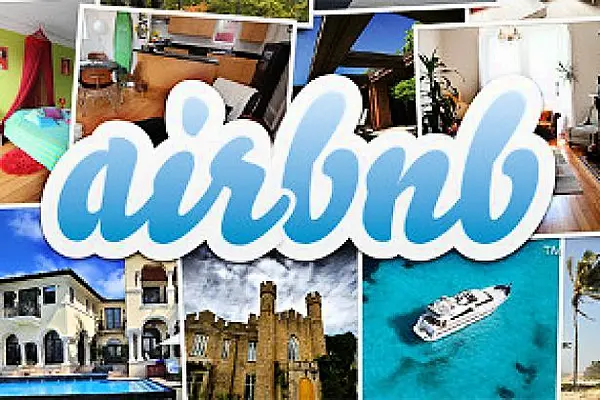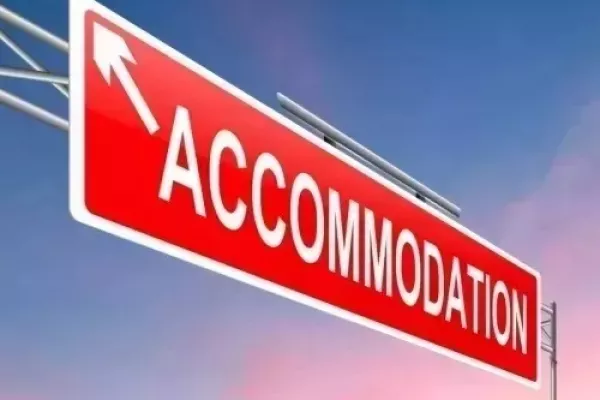Ryan Scott says traditional landlords are missing out. The real money is in Airbnb Inc.
Scott, 33, figures he brings in half a million dollars a year in revenue from 14 San Diego homes he leases by the night using the short-term rental site. That’s a 20 per cent profit margin and almost twice the revenue he could get from year-round tenants, he said. Scott owns eight of the houses and manages six others for landlords, and he’s able to do it and still keep his day job.
“When I got started a few years ago, it was very easy - there wasn’t a lot of professional competition on Airbnb,” Scott said. “Now I think it’s going to get much more crowded with professional managers, for better or worse. There’s a huge opportunity for bigger companies.”
Listings by investor hosts such as Scott, powered by sites like Airbnb, are surging in urban hot spots around the US. The rise of full-time hosts is spawning a crop of startups offering support services from housecleaning to key exchange. While the unlicensed lodgings are giving a lift to local restaurants, shops and bars, they’re drawing scrutiny from city governments and driving some neighbors crazy.
Airbnb gives investors a chance to scale like never before, said Jake Wegmann, a University of Texas professor who analyzed data scraped from the company’s website for San Francisco, Boston, Chicago, Washington and Austin. Listings by hosts with more than one Airbnb property in those cities made up about 40 per cent of the inventory last year, unchanged from 2013. Total listings more than doubled in the same period, he said.
Chris Lehane, Airbnb’s head of global policy, declined to provide data on the share of listings by hosts with more than one property on the website. He said he questioned the use of scraped data, noting that it could include boutique hotels or neighbors listing their properties for each other. About 75 perc ent of hosts nationally are families sharing their primary residence, he said.
“Airbnb is a middle-class, people-to-people platform - for the people, by the people, of the people,” Lehane said.
Home-Sharing Ordinance
Scott Shatford, 35, said he’s not concerned about a Santa Monica, California, home-sharing ordinance that took effect in June. It prohibits stays of less than 30 days in homes where the host isn’t living, with fines of as much as $500 per day. He said enforcing the ban will be difficult for the city because Airbnb listings don’t include addresses.
Shatford said he makes “six figures” annually from his five properties, each one renting for an average of $250 a night –- about $150 cheaper than nearby hotels. And he offers something hotels don’t: surfboards.
Shatford started Airdna.co, a data analytics firm, to find the most lucrative properties and locations for short stays. He said a low-risk approach to investing in the industry is to build a portfolio by signing yearlong leases instead of buying the properties. The worst that can happen is a landlord who isn’t told about the operation can terminate a lease and keep the security deposit. That happened to him in March.
“As soon as I signed the documents saying that I’d be leaving, the landlord asked me how much I would charge to consult for him to list other units on Airbnb,” Shatford said.
Troy Flanagan of the American Hotel & Lodging Association says investors have an advantage over hotels because they often don’t pay taxes and don’t have to comply with safety or zoning regulations.
“The current laws are being flouted,” said Flanagan, the group’s vice president of state and local government affairs. “The entire industry is operating under loopholes.”
Lehane of Airbnb said the company is “happy to have a level playing field and pay our fair share ofhotel taxes. We believe we present an incredible value proposition both for hosts and for guests.”
Hostile Cities
Investors frequently operate in cities that are hostile to their business model. New York Attorney General Eric Schneiderman concluded in a 2014 report that as much as 72 per cent of Airbnb reservations in the past several years violated state law. Airbnb, last valued at $25.5 billion, spent $8.4 million to successfully defeat a Nov. 3 San Francisco ballot measure that would have limited short-term rentals to 75 days a year from the current 90 days.
In San Francisco, about 77 per cent of entire units are rented for less than 90 nights a year, according to data from Airbnb.
Jason Martin has four homes in Austin, where the city council is considering the suspension of new short-term rental licenses and unhappy neighbors have made it harder for him to do business.
Code officers knocking on the doors in response to neighbors’ complaints about loud partying often interrupt guests who were just sleeping or showering, he said.
“Austin is completely under fire,” Martin said. “A minority of neighbors are pushing their agenda to get the rentals out.”
Angry Neighbours
Tracy Smith lives two houses down from one of Martin’s rentals, a short walk to the popular Rainey Street restaurants and bars. She says she’d rather see kids in the backyard of Martin’s property than guys playing beer pong, she said.
“People are making a killing,” Smith said. “Homes are taken up for families who’d want to live here.”
Angry neighbors haven’t slowed the expanding universe of the more than dozen startups that have emerged to serve the alternative travel industry, said Jeremiah Owyang, an industry analyst at Crowd Cos., a Redwood City, California-based research firm.
Companies include Beyond Pricing, which offers software so that owners can vary rates based on supply and demand; Guestprep.com, a turndown service for hosts that replaces towels and sheets and reports back on the state of the property; Airspruce, which links hosts with professional travel writers to pen listing descriptions; and Keycafe, which allows guests to pick up keys from neighborhood cafes.
“There’s a real industry here,” Owyang said. “It’s not just a fad.”
Guesty, a Tel Aviv-based startup, provides concierge services, promising to respond to guest inquiries within an hour, said Nathan Tobin, the company’s head of growth and marketing. The company now manages about 3,000 listings, primarily for professional hosts.
“There’s a huge spike in people asking us whether or not a property is ‘Airbnb-able,’” Tobin said. “Suddenly it’s on the checklist of whether to buy a property.”
News by Bloomberg, edited bY hospitality Ireland









